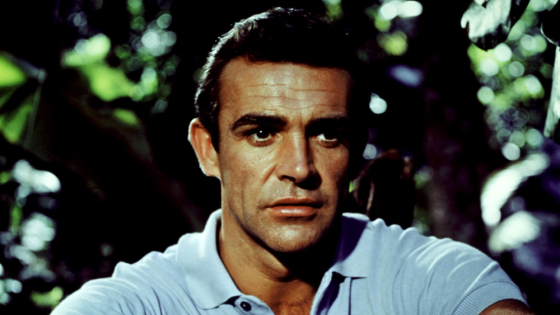For decades, dating back to the earliest days of the fantasy football era, tight end has been a position dominated by singular outlier talents who control the scoring leaderboard over multiple seasons, thwarting all challengers and snuffing out rebellions.
Travis Kelce is the most recent player to rule this spot like a medieval king, but he is certainly not the first. Kelce was preceded by Rob Gronkowski, who was himself preceded by Jimmy Graham, Antonio Gates, Tony Gonzalez, Shannon Sharpe, Ben Coates, Keith Jackson, Todd Christensen, Kellen Winslow and so forth, all the way back to John Mackey and Mike Ditka.
Historically, this is a roster spot at which the top overall fantasy scorer often provides a massive seasonal edge, occasionally doubling the production of all but three or four of their rivals. There are never 10 or 12 truly useful tight ends to go around.
If you had Kelce on a roster in 2022 — or Gronk in 2011, or Sharpe in 1996, or Christensen in 1983 (unlikely but not impossible) — then you already fully understand the benefits associated with a tier-of-his-own tight end. This position has a rich history of producing league-tilting players. Spending an early draft pick on the consensus No. 1 tight end has commonly been a winning move.
And yet, well … 2024 somehow feels different.
It may simply be the fact that Kelce, entering his age-35 season, is approaching the end of his reign. We’re in a transitional phase at this roster spot. Kelce appeared in just 15 games last year and showed his age in various others, yet he ultimately still delivered a top-three positional finish — the eighth consecutive season in which he’s done so. Sam LaPorta was actually the top-scoring fantasy tight end in 2023, and, if history is any guide, he’s a fair bet to emerge as the next undisputed alpha TE.
LaPorta is not, however, the only contender for that crown.
For the first time in several seasons, tight end doesn’t actually seem like a minefield in the middle tiers. This spot is suddenly full of interesting possibilities. In fact, you can realistically wait at tight end — maybe take the tenth or twelfth player off the board — and not feel as if your squad is doomed to enter each week with a five or six-point deficit.
Increasingly, of course, NFL tight ends are functioning purely as super-sized slot receivers — every player who ranks as a draftable tight end for 2024 ran a route on 85-95% of their passing snaps last year. The game itself has evolved to the point that elite fantasy tight ends are almost indistinguishable from wide receivers in terms of usage. A reasonable argument can be made to simply merge this position with the wideouts, but that’s beyond the scope of today’s discussion.
For now, we still need to fill this spot in fantasy. Fortunately, it’s never been easier to talk yourself into a mid-draft option.
Breakout TE to target: Dalton Kincaid has a chance to be one of fantasy’s right answers
It’s possible that a Josh Allen-Dalton Kincaid pairing will never again be as attainable as it is in 2024. That feels like a potential winning combo. Kincaid is very much in the conversation to finish as fantasy’s TE1. He’s coming off a rookie season in which he caught a whopping 80.2% of his targets and delivered 673 yards. His team context is nearly ideal and he has every trait we’re looking for:
Kincaid is basically the easy-button for Allen in the Bills’ passing attack. He also isn’t burdened with any of the traditional tight end responsibilities other than receiving — he blocked on just 1.2% of pass snaps last season per PFF — so we need to think of him as a position eligibility glitch.
Let’s also recall that Buffalo has over 240 vacated targets following the departures of Stefon Diggs and Gabe Davis, so Kincaid has a clear path to triple-digit opportunities. It’s hardly crazy to believe he has an 80-1000-10 season within his range of outcomes.
The sleeper who can smash their ADP: Isaiah Likely
Without question, Isaiah Likely has a pretty serious Mark Andrews problem. We will not attempt to convince you otherwise. Over the past six seasons, when Andrews has been fully operational, he’s been among the very best of the non-Kelce tight ends. He’s great — a circle-of-trust tight end for a two-time MVP quarterback; we intend no disrespect to Andrews here.
But if you’re taking a late-draft swing on a tight end, why not get a guy who’s already demonstrated top-five upside? We don’t have to speculate on whether Likely is capable of elite production because we’ve seen it. Last season, when Andrews was sidelined by injury in Baltimore’s final six games, Likely delivered 322 receiving yards and five scores. Several of his catches were of the highest quality, too:
Ideally, the Ravens would find a way for both of their uncoverable tight ends to see consistent volume, but that may not initially be the case. Still, when we’re taking late fliers in fantasy, we’re really only thinking about best-case scenarios. If Andrews misses time for any reason this year (and he’s missed a dozen games over the past five seasons), Likely will be the game’s buzziest waiver add, an obvious must-start tight end.
This is not a position at which we’d typically advise you to draft a backup, but Likely is the rare tight end who would immediately emerge as a primary option in his team’s passing game.
T.J. Hockenson is the one brand-name tight end you should probably fade
As a longtime Iowa tight end propagandist, it brings me no pleasure to tell you that T.J. Hockenson is a classic fantasy trap. Hock is obviously an excellent player when healthy, but he’s currently recovering from an ACL/MCL repair and not expected to return to action until October or November. Your fantasy league’s regular season will be halfway over before Hockenson makes his 2024 debut. Upon returning, we can’t reasonably expect him to be the vintage version of himself, either.
Someone in your league is going to convince themselves that a Hockenson stash will provide their squad with an upper-tier tight end at a bargain bin cost, but he’s going to A) burn a roster spot for two months in which he won’t help, B) return eventually as one of Sam Darnold’s secondary options and C) require the drafting of a second starting-quality tight end.
In all likelihood, Hockenson will become a late-September drop, well ahead of his return to the field. Unless he falls to the final rounds and your league offers plenty of bench and/or IR slots, he’s a big-time fade.
Top-20 tight end rankings for 2024
-
Sam LaPorta, Detroit Lions
-
Travis Kelce, Kansas City Chiefs
-
Trey McBride, Arizona Cardinals
-
Mark Andrews, Baltimore Ravens
-
George Kittle, San Francisco 49ers
-
Dalton Kincaid, Buffalo Bills
-
Kyle Pitts, Atlanta Falcons
-
Evan Engram, Jacksonville Jaguars
-
Jake Ferguson, Dallas Cowboys
-
David Njoku, Cleveland Browns
-
Dallas Goedert, Philadelphia Eagles
-
Brock Bowers, Las Vegas Raiders
-
Dalton Schultz, Houston Texans
-
Pat Freiermuth, Pittsburgh Steelers
-
Luke Musgrave, Green Bay Packers
-
Cole Kmet, Chicago Bears
-
T.J. Hockenson, Minnesota Vikings
-
Noah Fant, Seattle Seahawks
-
Hunter Henry, New England Patriots
-
Cade Otton, Tampa Bay Buccaneers
Source Agencies


